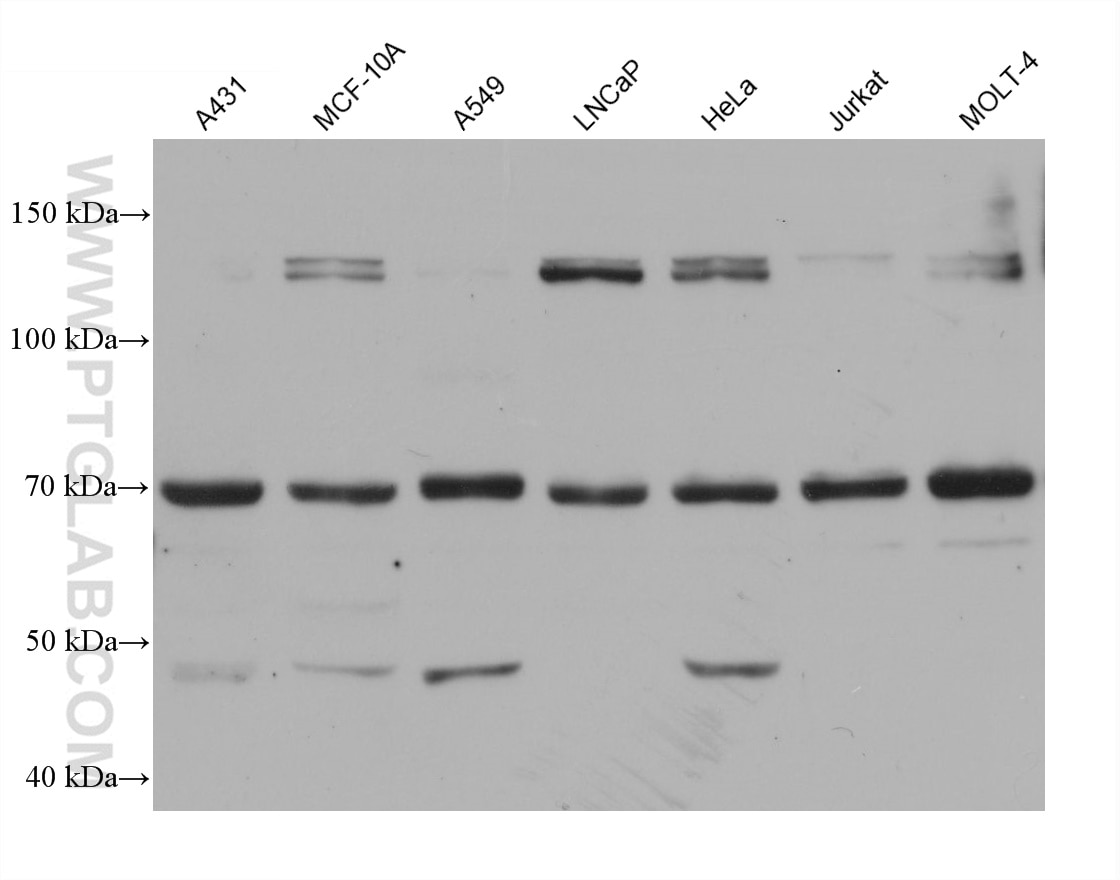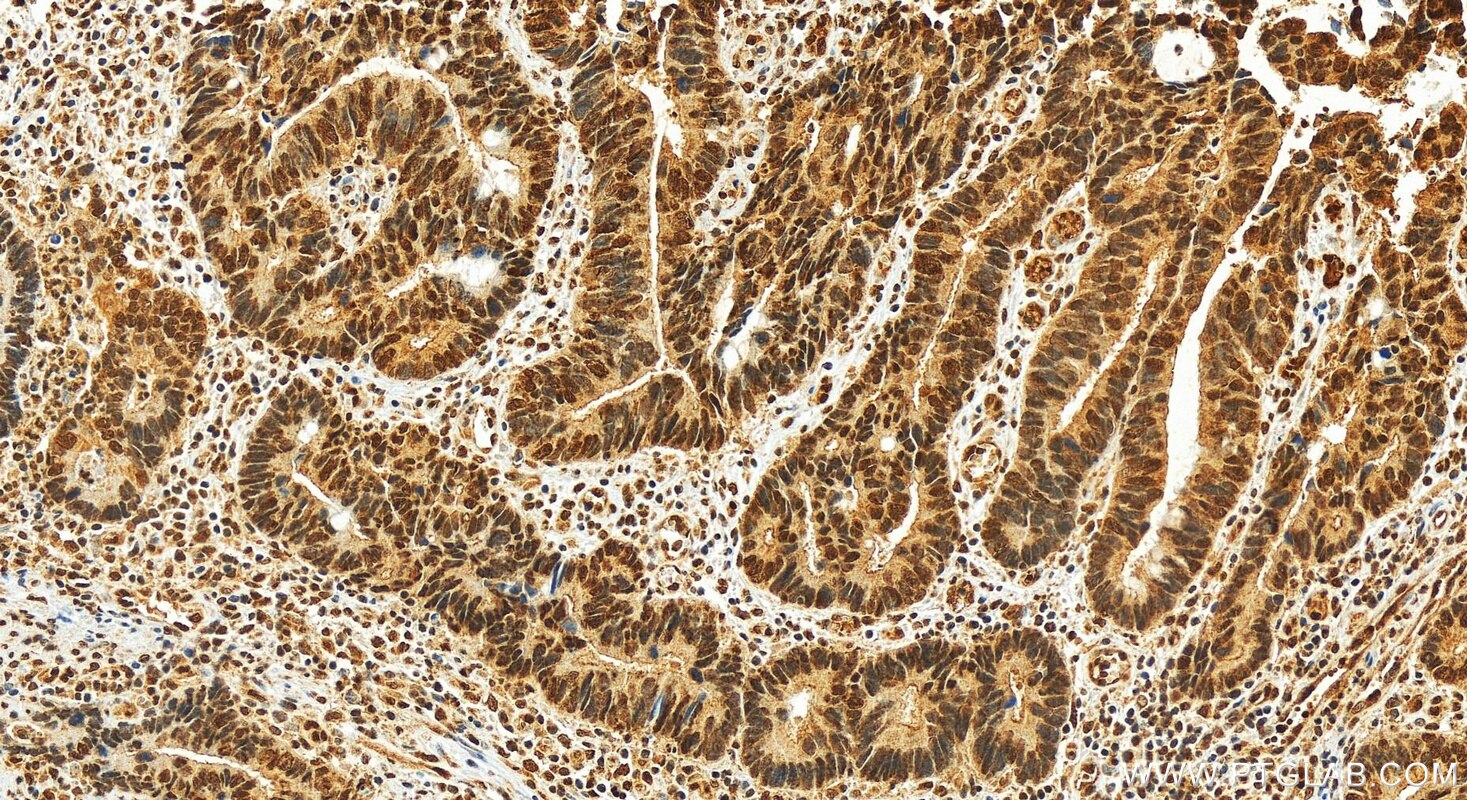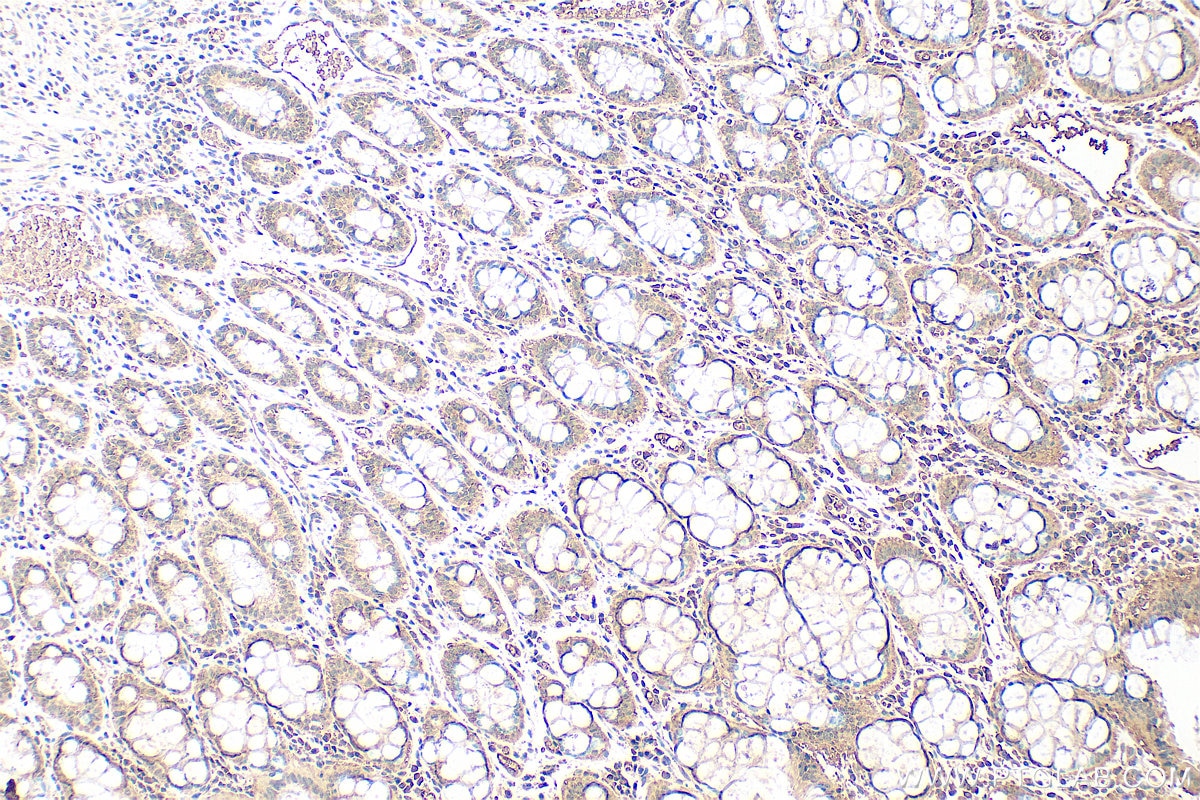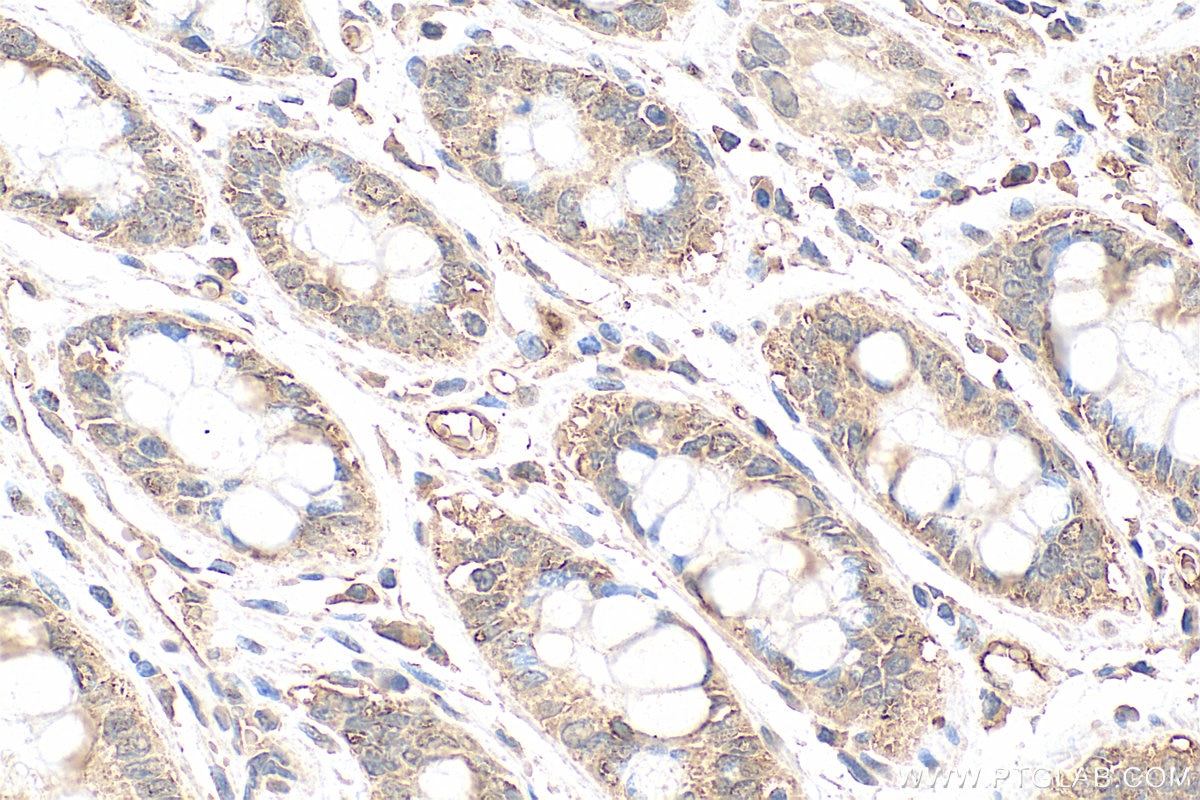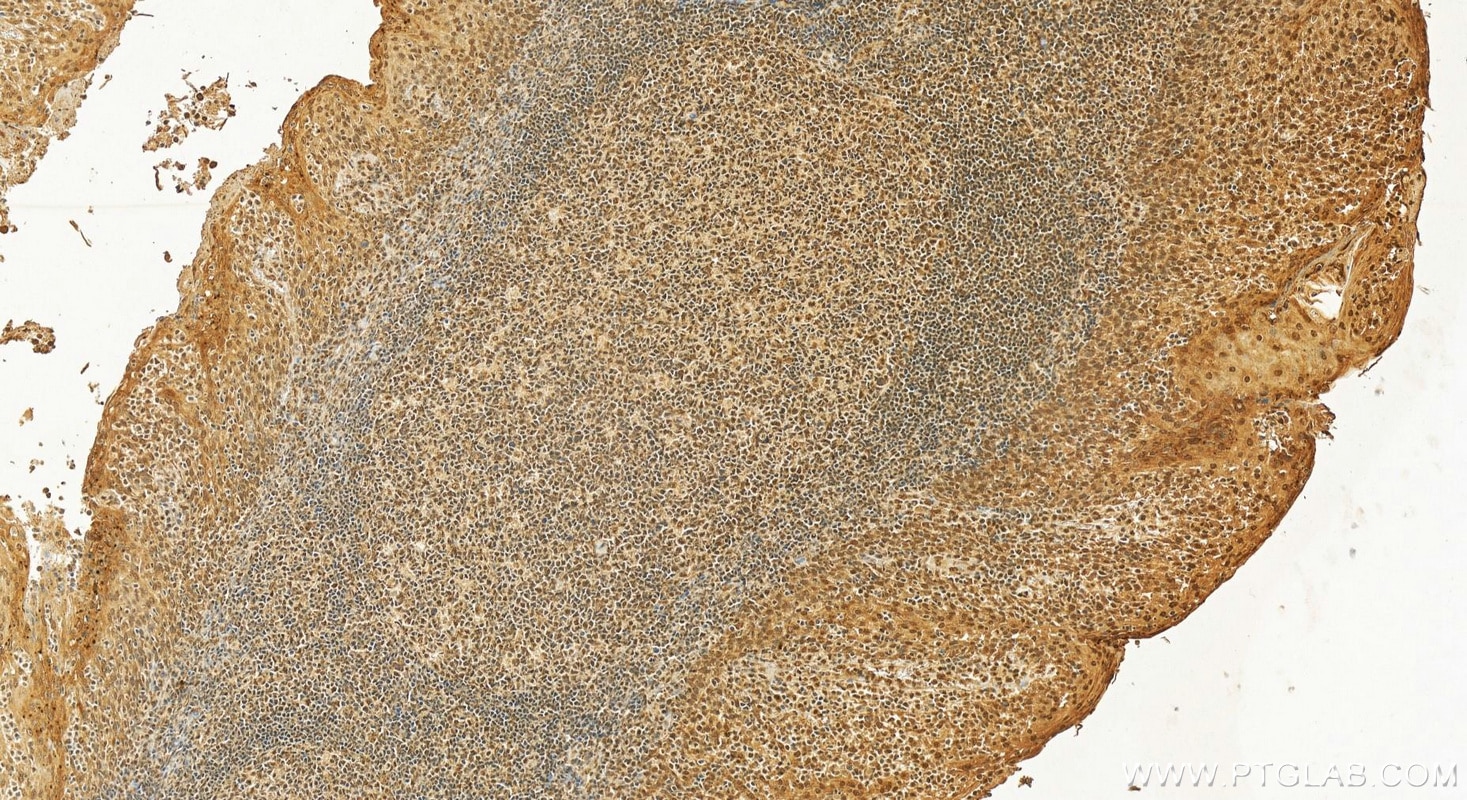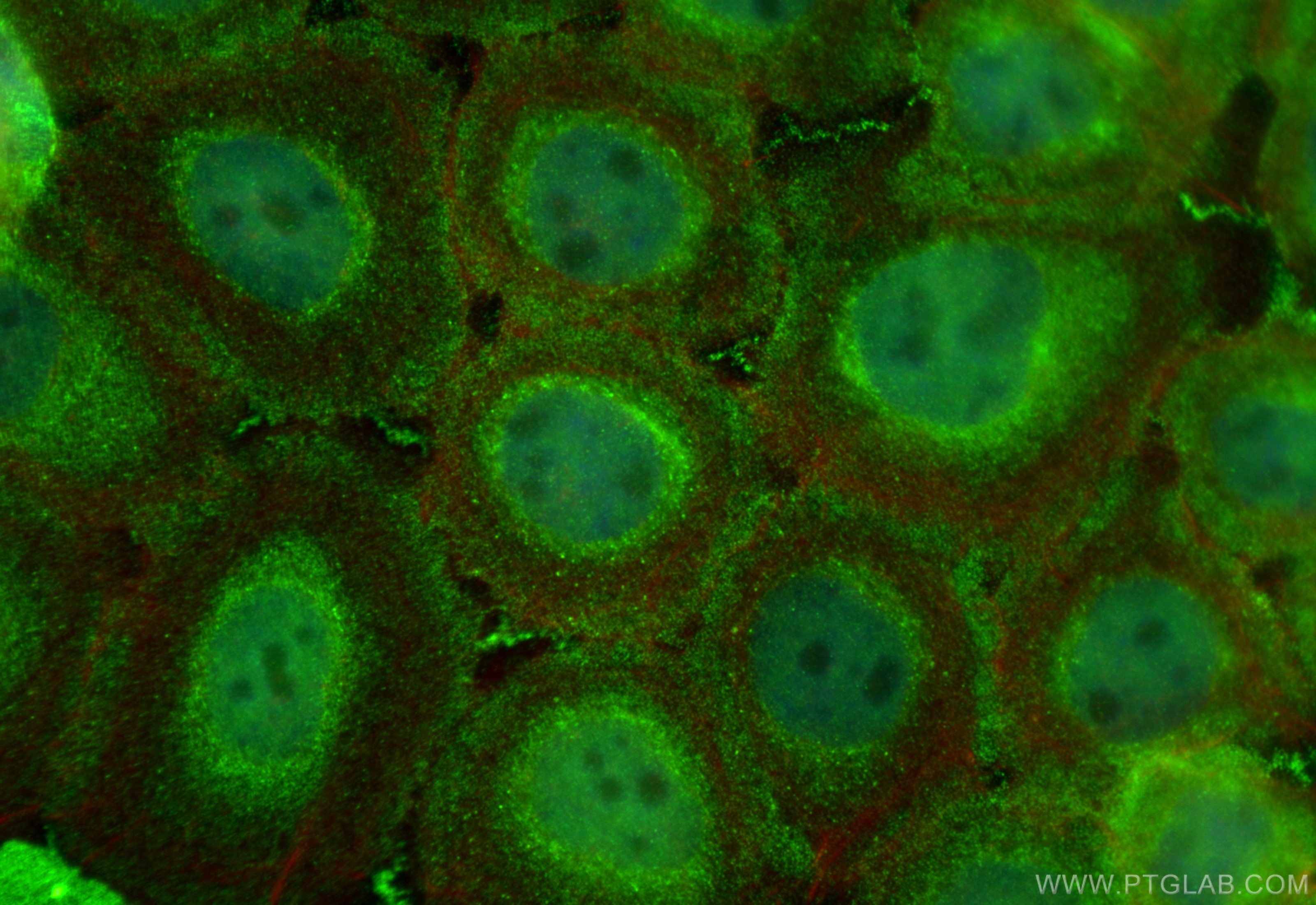Validation Data Gallery
Tested Applications
| Positive WB detected in | A431 cells, MCF-10A cells, A549 cells, LNCaP cells, HeLa cells, Jurkat cells, MOLT-4 cells |
| Positive IHC detected in | human rectal cancer tissue, human tonsillitis tissue Note: suggested antigen retrieval with TE buffer pH 9.0; (*) Alternatively, antigen retrieval may be performed with citrate buffer pH 6.0 |
| Positive IF/ICC detected in | A431 cells |
Recommended dilution
| Application | Dilution |
|---|---|
| Western Blot (WB) | WB : 1:5000-1:50000 |
| Immunohistochemistry (IHC) | IHC : 1:500-1:2000 |
| Immunofluorescence (IF)/ICC | IF/ICC : 1:400-1:1600 |
| It is recommended that this reagent should be titrated in each testing system to obtain optimal results. | |
| Sample-dependent, Check data in validation data gallery. | |
Product Information
68592-1-Ig targets AEG-1/MTDH in WB, IHC, IF/ICC, ELISA applications and shows reactivity with human samples.
| Tested Reactivity | human |
| Host / Isotype | Mouse / IgG1 |
| Class | Monoclonal |
| Type | Antibody |
| Immunogen |
CatNo: Ag5033 Product name: Recombinant human AEG-1 protein Source: e coli.-derived, PET28a Tag: 6*His Domain: 233-582 aa of BC045642 Sequence: EQLTTASFPVGSKKNKGDSHLNVQVSNFKSGKGDSTLQVSSGLNENLTVNGGGWNEKSVKLSSQISAGEEKWNSVSPASAGKRKAEPSAWSQDTGDANTNGKDWGRSWSDRSIFSGIGSTAEPVSQSTTSDYQWDVSRNQPYIDDEWSGLNGLSSADPNSDWNAPAEEWGNWVDEERASLLKSQEPIPDDQKVSDDDKEKGEGALPTGKSKKKKKKKKKQGEDNSTAQDTEELEKEIREDLPVNTSKTRPKQEKAFSLKTISTSDPAEVLVKNSQPIKTLPPATSTEPSVILSKSDSDKSSSQVPPILQETDKSKSNTKQNSVPPSQTKSETSWESPKQIKKKKKARRET 相同性解析による交差性が予測される生物種 |
| Full Name | metadherin |
| Calculated molecular weight | 582 aa, 64 kDa |
| Observed molecular weight | 70-80 kDa |
| GenBank accession number | BC045642 |
| Gene Symbol | AEG-1/MTDH |
| Gene ID (NCBI) | 92140 |
| RRID | AB_3085291 |
| Conjugate | Unconjugated |
| Form | |
| Form | Liquid |
| Purification Method | Protein G purification |
| UNIPROT ID | Q86UE4 |
| Storage Buffer | PBS with 0.02% sodium azide and 50% glycerol{{ptg:BufferTemp}}7.3 |
| Storage Conditions | Store at -20°C. Stable for one year after shipment. Aliquoting is unnecessary for -20oC storage. |
Background Information
MTDH, also known as AEG-1, is a single-pass transmembrane protein with its gene located at chromosome 8q22 , the abnormalities of which have been identified in several tumor types. MTDH is overexpressed in a number of malignancies, such as breast cancer, malignant glioma, and neuroblastoma , and its overexpression is associated with poor clinical outcome. MTDH plays an important role in the regulation of carcinogenesis and tumor progression.
Protocols
| Product Specific Protocols | |
|---|---|
| IF protocol for AEG-1/MTDH antibody 68592-1-Ig | Download protocol |
| IHC protocol for AEG-1/MTDH antibody 68592-1-Ig | Download protocol |
| WB protocol for AEG-1/MTDH antibody 68592-1-Ig | Download protocol |
| Standard Protocols | |
|---|---|
| Click here to view our Standard Protocols |

